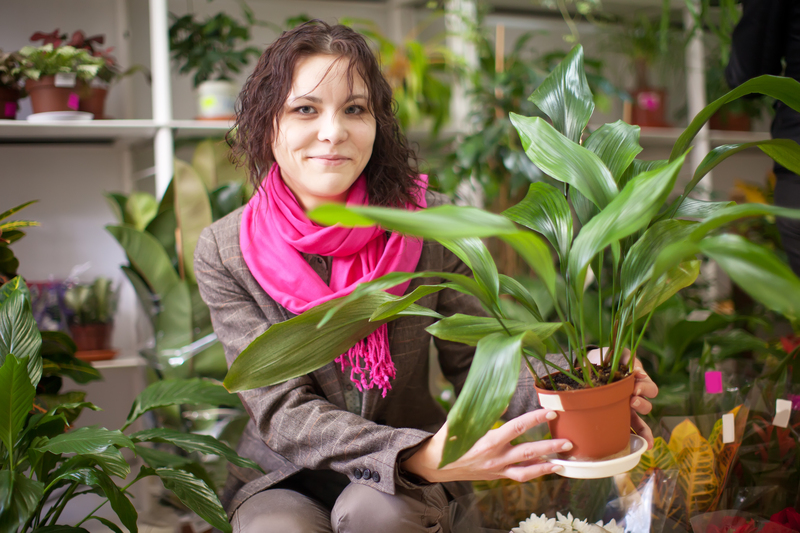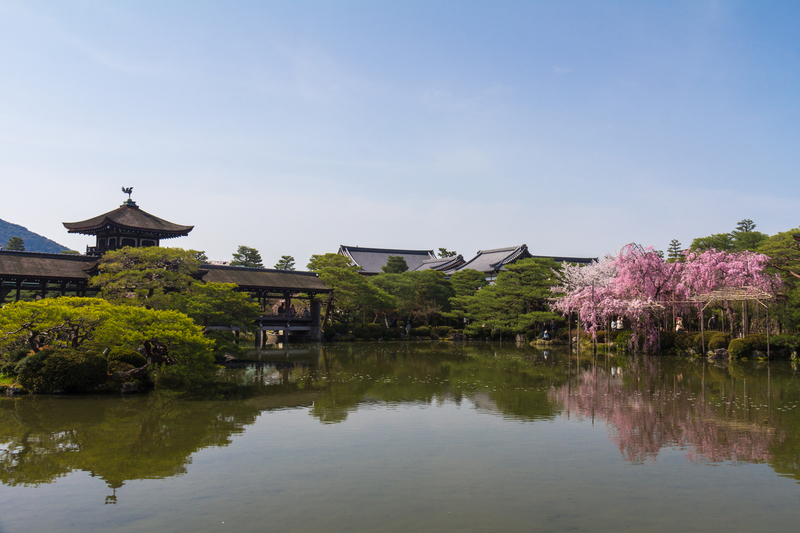How Sustainable Gardening Practices Benefit the Environment
Posted on 15/08/2025
How Sustainable Gardening Practices Benefit the Environment
In today's fast-paced world, sustainable gardening practices are becoming increasingly essential to ensure a healthier planet. With environmental concerns such as climate change, habitat loss, and resource depletion on the rise, gardeners and homeowners alike are turning towards eco-friendly gardening methods. But how exactly do these methods support our ecosystems? In this comprehensive article, we delve into how sustainable gardening not only cultivates beautiful landscapes but also creates ripple effects that benefit the environment in profound ways.
Understanding Sustainable Gardening
Sustainable gardening is a holistic approach to cultivating plants and landscapes in ways that minimize negative environmental impact. It emphasizes methods that work in harmony with nature rather than against it. Organic gardening, permaculture, native planting, and wildlife-friendly gardening are just a few approaches under the broader umbrella of sustainable practices.
Defining Sustainable Gardening Practices
- Reducing chemical input: Limiting or eliminating synthetic fertilizers, pesticides, and herbicides.
- Efficient use of resources: Conserving water, energy, and materials.
- Soil stewardship: Enriching soil health via composting, mulching, and crop rotation.
- Promoting biodiversity: Planting diverse species, especially natives, to attract pollinators and beneficial insects.
- Waste reduction: Recycling green waste and utilizing organic matter effectively.

Environmental Benefits of Sustainable Gardening Practices
Eco-friendly gardening is more than a trend--it's an effective way to restore and preserve environmental health. Below, we explore the major benefits of sustainable gardening for the environment.
1. Conservation of Water Resources
Water scarcity is a global issue. Sustainable gardening practices like mulching, drip irrigation, and selecting drought-tolerant plants drastically minimize water usage. By harnessing rainwater harvesting systems or creating rain gardens, homeowners can reduce dependency on municipal water, promoting greater conservation.
- Reduced runoff and erosion through permeable landscaping.
- Rainwater collection for irrigation needs.
- Native plants that thrive on local rainfall without supplemental watering.
2. Improved Soil Health
Healthy soil is the cornerstone of any garden. Sustainable gardening enriches the soil naturally through composting, mulching, and reducing tillage. These measures boost soil fertility, structure, and water-holding capacity.
- Compost adds organic matter and beneficial microbes.
- Mulch prevents soil erosion and conserves moisture.
- Reduced chemical usage preserves the natural microbial ecosystem.
By practicing organic gardening, homeowners can significantly lower the risk of soil contamination, ensuring a thriving environment for plants, insects, and microorganisms.
3. Enhanced Biodiversity and Habitat Creation
A diverse garden acts as a haven for countless species. By incorporating native plants, pollinator gardens, and wildlife-friendly features, sustainable gardeners provide essential food, habitat, and resources for birds, insects, and small mammals.
- Attracts beneficial pollinators like bees and butterflies.
- Supports food chains for birds and mammals.
- Encourages a balanced ecosystem, reducing pest outbreaks.
4. Carbon Sequestration and Climate Change Mitigation
Plants absorb carbon dioxide (CO2) and release oxygen, playing a key role in climate regulation. Sustainable gardens, with their emphasis on perennial planting, tree coverage, and minimal soil disturbance, effectively capture atmospheric carbon.
- Compost and mulch increase organic carbon storage in the soil.
- Trees and shrubs sequester large quantities of CO2 over their lifetimes.
- Healthy gardens lower urban heat island effects and cool the environment.
5. Reduction of Pollution and Toxins
Conventional gardening often relies on chemical pesticides and fertilizers that can leach into water systems, harm non-target species, and disrupt ecosystems. Sustainable gardening prioritizes non-toxic solutions:
- Biological pest control (ladybugs, companion planting).
- Organic soil amendments instead of synthetic fertilizers.
- Phytoremediation using plants to absorb toxins from soil and water.
6. Less Waste and More Recycling
Green gardening practices minimize the amount of waste sent to landfills. Composting kitchen scraps and yard waste turns organic matter into valuable soil amendments. Many sustainable gardeners reuse garden pots, stakes, and other materials, fostering a circular ecosystem within the garden.
- Vermicomposting for organic waste with the help of worms.
- Grasscycling and leaf mulching eliminate the need for disposal.
- Reusing rainwater and repurposing old containers reduce resource demand.
7. Protection and Support of Native Species
Planting native flora is integral to biodiversity gardening. Native plants require less maintenance, attract local pollinators, and fortify local food webs by providing resources for indigenous insects and birds.
- Reduces invasive species threats.
- Encourages resilient landscapes adapted to local climate and soil.
- Offers vital habitats for at-risk wildlife.
Key Sustainable Gardening Practices to Implement
Transforming your green space into a more eco-conscious garden doesn't require a complete overhaul. By incorporating a few proven sustainable gardening methods, you can make a difference while enjoying a lush, productive landscape.
Composting and Mulching
- Compost kitchen scraps, yard clippings, and leaves to create nutrient-rich soil amendments.
- Use mulch made from organic materials to protect soil, suppress weeds, and retain moisture.
Choosing Native and Perennial Plants
- Opt for native species suited to local climates--they need less water and pest management.
- Perennial plants live for multiple years, reducing soil disturbance and keeping landscapes stable.
Integrated Pest Management (IPM)
- Monitor pest levels and intervene only when necessary.
- Encourage natural predators, introduce companion plants, and maintain optimal soil health to limit outbreaks.
Efficient Irrigation Techniques
- Install drip irrigation systems to deliver water directly to plant roots.
- Water early mornings or late evenings to reduce evaporation.
- Group plants with similar water needs together.
Reducing Lawn Areas
- Replace turf with diverse flower beds, meadows, or edible landscapes.
- Lawns often demand high water and chemical inputs that sustainable gardening seeks to reduce.
Encouraging Wildlife
- Create animal-friendly features like bird baths, bat boxes, and insect hotels.
- Use hedge corridors and layered planting to shelter and support wildlife.
The Social and Personal Benefits of Sustainable Gardening
While sustainable gardening practices have widespread environmental impacts, the advantages also extend to personal well-being and community health:
- Reduced exposure to harmful chemicals for families and pets.
- Healthier homegrown produce and herbs.
- Opportunities for outdoor activity and mental health improvement.
- Community gardens foster local food security and social connections.

Challenges and Solutions for Sustainable Gardening
Transitioning to a sustainable garden may present initial challenges, including cost, lack of knowledge, or limited plant availability. However, these barriers are easily overcome with a combination of community engagement, ongoing education, and resource-sharing.
- Seek guidance from local gardening clubs or extension services.
- Start small--transform one section of your yard at a time.
- Swap seeds, plants, and resources with neighbors to diversify your garden sustainably.
- Utilize online resources and courses to build your sustainable gardening expertise.
Conclusion: Creating a Greener Future
Embracing eco-friendly gardening techniques is a powerful way for individuals, families, and entire communities to combat environmental challenges. By adopting sustainable gardening practices, we conserve vital resources, foster biodiversity, protect soil and water, and reduce pollution.
Every garden--no matter the size--can become a sanctuary for wildlife, a carbon sink, and a leader in environmental stewardship. By making conscious choices and implementing green gardening solutions, you play a crucial part in cultivating a cleaner, healthier, and more sustainable world for generations to come.
Start your journey towards sustainable gardening today and watch as your landscape flourishes and the environment thrives alongside it.
Latest Posts
Creating a Safe and Fun Outdoor Space for Kids
Create a safe and fun outdoor space for children in your garden
Breathe New Life into Your Overgrown Garden Today

